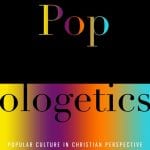A review of Echoes of Eden: Reflections on Christianity, Literature, and the Arts might seem unnecessary when you consider two factors. First, it’s written by Jerram Barrs, founder of the Francis Schaeffer Institute at Covenant Theological Seminary in St. Louis, Missouri. Second, Tim Keller has identified the book as “the most accessible, readable, and theologically robust work on Christianity and the arts.” Given these two factors, I can find no reason to delay your visit to Amazon to purchase a copy. However, for those desiring a bit more discussion about this excellent work on the arts, I shall proceed.
As Barrs observes at the outset, “Thinking scripturally about the arts is an area where there appears to be great confusion in our churches.” Echoes of Eden enters into this confusion and attempts to enlighten the oft-bewildered minds of Christians engaging art. Barrs captured my attention with his contagious passion and scriptural wisdom on the subject. Indeed, one may sincerely deduce that much common confusion will be reduced now that Barrs has completed this work. He raises many popular concerns and objections and then logically carries us to biblically discerning answers.
I particularly appreciated the grace with which Barrs communicates. The arts, after all, often represent a significant source of frustration and disagreement. Barrs’s assertions and counterarguments don’t come across with arrogance or impatience, but rather with a spirit of love and care for his readers. Even his rebuke of certain Christians for their disdain of Harry Potter comes across with a certain pastoral care.

Echoes of Eden: Reflections on Christianity, Literature, and the Arts
Jerram Barrs
Echoes of Eden: Reflections on Christianity, Literature, and the Arts
Jerram Barrs
Barrs’s foundation for evaluating and defining great art lies in three key aspects. As he writes, “All great art will echo these three elements of Eden: (1) Eden in its original glory, (2) Eden that is lost to us, and (3) the promise that Eden be restored” (24). This nuanced approach to “creation, fall, redemption” begins with the assertion that all human beings are sub-creators. Creatures made in the image of the Master Artist will long to create. “In exercising dominion over God’s good creation,” Barrs writes, “we are not creators in an absolute sense, like God, but, rather, sub-creators at best” (18). To varying degrees, then, we are all artists who cannot escape interaction with the arts. Even though some argue the arts are unspiritual and worldly, we still find that “art is inescapably part of our lives. Anyone who thinks about the presentation of food on a plate or what colors of flowers to grow in their garden is acknowledging that human beings cannot escape the arts” (35).
Call of the Artist
After surveying various attitudes towards the arts and how our artistic sub-creations echo the greater creativity of God, Barrs considers the call of the artist. Further, in regard to common terms like “Christian subject” or “Christian art,” he offers four considerations. First, such phraseology could mean “art designed for worship or devotion,” which would include hymns, prayers, stained glass windows, and so forth (37). Second, it could refer to “Christian content,” which would include “biblical scenes or scenes from church history” (38). Third, it could have in view art that is “teaching us spiritual or evangelistic lessons” (39). Last, using the expression “Christian art” could simply be referring to “art produced by Christians” (39). I found this to be one of the strongest sections in the book, as this is an area that routinely causes Christians a great deal of confusion. Additionally, Barrs considers abstract art as well as the second commandment in representational art. This proves to be a natural segue into a proper judging of art.
Barrs offers 11 criteria by which to properly judge the arts. Though each is quite helpful, I wish he’d have expounded a bit more on his 11th criterion concerning entertainment. He writes, “Human art, just like God’s art, need not always have a ‘higher’ purpose than enjoyment—ours and God’s” (62). While I agree with Barrs about enjoying God’s art, I think this is an area where we need to be challenged a bit more. It seems most of our culture simply enjoys art unreflectively, often resulting in a consumeristic mindset toward the medium. Entertainment by definition, moreover, means we interact with something on a deeper level. Just as some of you are entertaining the thoughts I’m here presenting, being entertained by the arts means engagement, not disengagement. I’m not suggesting Barrs argues for a disengaged mind when experiencing the arts; rather, I’m simply observing that many assume as much when they want to be entertained. Therefore, although I enjoyed this section and agree with Barrs, I wish more extensive discussion would have been devoted to this point. (For what it’s worth, I have found James Harleman’s Cinemagogue: Reclaiming Entertainment and Navigating Narrative for the Myths and Mirrors they were Meant to Be helpful in this regard.)
Echoes of Eden concludes by considering five massively influential artists: C. S. Lewis, J. R. R. Tolkien, Jane Austin, J. K. Rowling, and William Shakespeare. Employing specific examples from these five artists, Barrs successfully and eloquently brings us full circle to his three aspects composing the echoes of Eden. In so doing he not only imparts his appreciation for great art but also assists us with these specific examples. Echoes of Eden untangles the knotty subject of Christianity and the arts.




































